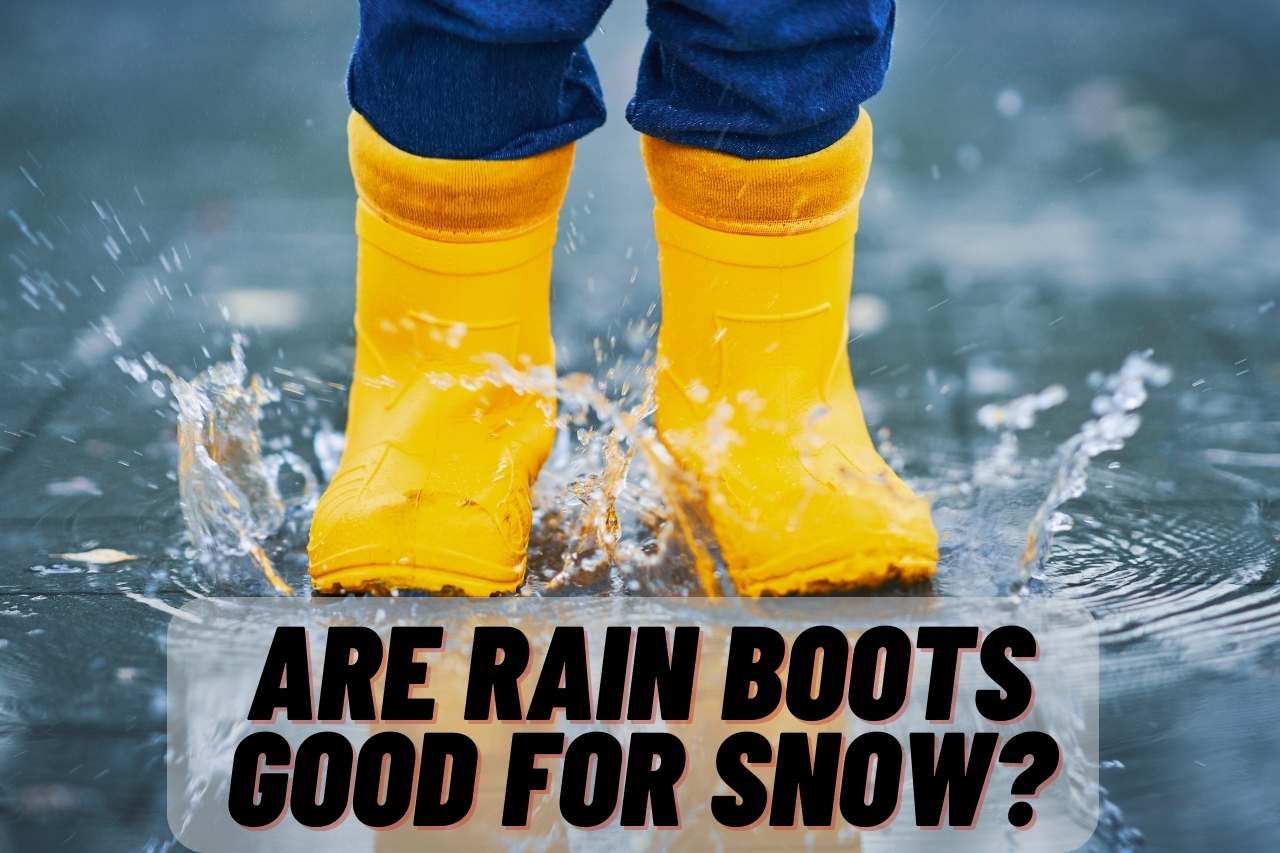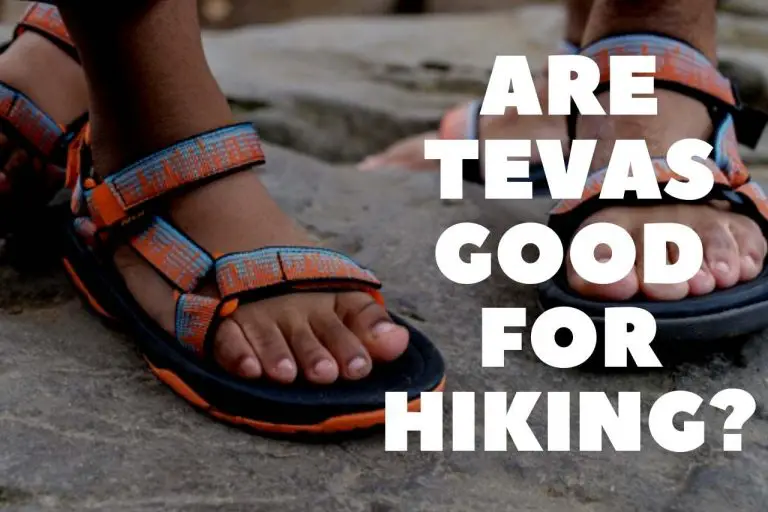Are Rain Boots Good for Snow? [Don’t Get Caught Out]
It’s normal to ponder if you require snow footwear if you currently possess an excellent set of rain footwear. Rain footwear is waterproof, while snow is merely water that gets frozen. Snow boots seem unnecessary, to be honest. As with most things, the issue is trickier than it looks initially. It would help if you were scared to venture out in the snow with your rain footwear now that wintertime is right around the corner. They undeniably doubt excellent at keeping your feet dry, but what about the cold? So are rain boots good for snow? This guide will discuss whether putting them on in the snow is safe.
Quick Summary: Rain boots can get worn in the snow, and that is a fact. Nevertheless, only if you bear a couple of factors in mind. Ensure the temperature does not drop below 5°C, or 41°F, as one of them. Using boot inserts, which provide superior protection from the chilly, is the second most crucial step.
Read more about the proper ways to wear rain boots in the snow.
The best footwear for wearing during wet weather is a pair of rain boots, which you may wear to the workplace just as you would in the summertime. Both options are wearing rain footwear for everyday travel and keeping your work footwear in your luggage till you get to your workplace. And mainly if you get employed in a setting where formal clothing is needed. So let’s look at are rain boots good for snow.
Are Rain Boots Good for Snow? – Everything You Need to Know
Rain boots’ name provides just a partial explanation of when they should get worn. If we had to speculate, we’d say you probably considered the monsoon months. It must be true, then. However, this isn’t the only possibility for footwear! The footwear will safeguard your feet if there is rainwater, snowfall, or any other moisture nearby. But it goes beyond just maintaining your feet dry. Mainly whenever there is snow nearby, considering it’s chilly, wet, and slick.
Countries and even individual states can have different levels of cold. Chicago, for instance, is generally cooler than Miami. Then again, Saudi Arabia is far warmer than Russia. Therefore, if you keep your rain footwear on excessively long in cold weather, your feet will quickly freeze. Boot inserts genuinely shine in the situation. How dry your feet are won’t signify until you experience the cold. To keep them from freezing would be the only option that’d count.
Note: Hunter rain footwear gets reputed to be far more robust and long-lasting than standard rain footwear. They also provide better comfort and long-lasting moisture protection for your feet.
Boot Inserts
You may use boot inserts within your rain footwear throughout the winter since they are exceptionally soft, warm, and highly insulated padded. The inserts could need extra assistance to resist the bitter chill if the temperature is less than 5°C or 41°F. Once they’re on, the boots, insoles, and package could assist you through the entire season without fretting about your feet being numb in the snowfall.
To maintain the comfort of your feet, you could require more inserts than just one, which we indicate by supporting. However, most experts suggested choosing snow boots rather than rain footwear. Snow footwear is the perfect candidate since they get explicitly made to withstand frigid temperatures, particularly below 5°C or 41°F. The boot inserts are comfortable but aren’t thick or protected enough to keep your feet warm throughout a severe winter. And besides, they weren’t made to be worn in 1-foot-deep snowfall; they get developed to maintain your feet comfortable and dry surrounding water.
Limitations
Rain boots are bad for snowfall, even if you may use them in the wintertime. Since they lack an insulating covering that would maintain your feet nice and comfortable, they are not waterproof. The problem could get resolved with boot inserts or thicker socks. But, it only functions at temperatures of 5°C or higher. Confusing what is acceptable and practical in a specific situation is undoubtedly familiar. As we’ve already said, wearing rain footwear in the snow is achievable, provided you maintain a few things in mind. However, is it safe to use them when it is going to snow?
The ideal persons to respond to that inquiry are those who have worn them in the snowfall. Most claimed rain footwear could not withstand the cold, particularly below 5°C. Their feet eventually begin to freeze, despite wearing many boot inserts. Furthermore, it goes beyond simply donning them when the temperature exceeds the indicated average limit. It also depends on how long you spend out in the snowfall. The longer you remain in the snowfall, the more your feet become colder, regardless of whether the temperature is over 5°C. Your feet may eventually begin to feel chilly via the inserts.
Snow boots readily address this problem since it could be challenging to get hold of several variables since you are using a specific pair of boots. They get designed to provide the best possible warmth, comfort, and moisture resistance for your feet. All these aspects must harmonize for the footwear to function well in the snowfall. It is only possible to use snow footwear, not rain footwear, to meet these criteria fully. The specialists state this, so it isn’t just me that thinks so.
Bottom Line
So for answers for, are rain boots good for snow are a clear no as they don’t help much by themselves in the snowfall. They cannot endure the cold and don’t offer sufficient warmth because of a shortage of insulation. You could, though, be able to spend some time outside if the boots get donned with thick, warm, insulated boot insoles. The temperature should constantly be higher than 5°C, though. If not, your feet will begin to freeze, and the footwear will start to break. Choosing snow footwear should thus be preferable to choosing rain footwear.
Related Reads: Discover More Content You’ll Love
Does It Snow in Sicily? Everything You Need To Know!!!
Is Calabria in Sicily? All You Need To Know
Are there Ski Resorts in China?

Hi there, I’m Chathuranga, a travel enthusiast, web developer, and the chief editor of Visitminds.com. Traveling around the world, and experiencing different types of cultures, hotels, and destinations is my passion and I will put my best foot forward to share my knowledge on Visitminds.com via exciting blog posts to make you a pro traveler. Let’s do this!







